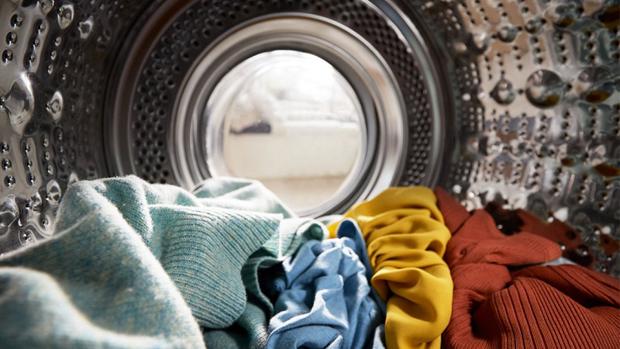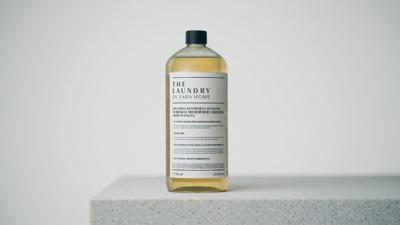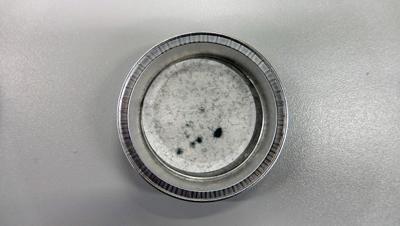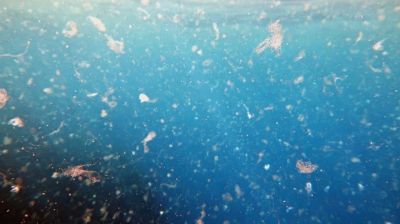University of Toronto

(Source: University of Toronto)
When clothes made from synthetic fabrics go in the washing machine, the friction caused by cleaning cycles produces tiny tears that cause microplastic fibers – measuring less than 500 µm in length – to break off and make their way down laundry drains to enter waterways, where the particles can be difficult to remove and take decades or more to fully break down. A team of researchers at the University of Toronto (U of T), Toronto/Canada have designed a solution to reduce the amount of microplastic fibers shed when washing synthetic fabrics.
A 2-layer coating has been created made of polydimethylsiloxane (PDMS) brushes, which are linear, single polymer chains grown from a substrate to form a nanoscale surface layer. More than 2 thirds of clothes are now made of synthetic fabrics, such as polyamide (PA), polyester (PET), acrylic and rayon. Experiments conducted by the researchers showed that this coating can significantly reduce microfiber shedding of PA clothing after repeated laundering.
PDMS is used in shampoos to make hair shiny and slippery, and is also used as a food additive in oils to prevent liquids from foaming when bottled. Reducing the friction that occurs during wash cycles with a PDMS-based fabric finish could prevent fibers from rubbing together and breaking off during laundering.
One of the biggest challenges the researchers faced during their study was ensuring the PDMS brushes stayed on the fabric. Therefore, a molecular primer was developed based on the understanding of fabric dyes; the type of bonding responsible for keeping dyed apparel colorful after repeated washes works for the PDMS coating as well. Neither the primer nor the PDMS brushes work separately to decrease the microplastic-fiber shedding. But together, they created a strong finish that reduced the release of microfibers by more than 90% after 9 washes.
PDMS brushes are environmentally friendly because they are not derived from petroleum. With the addition of the primer, the coating is robust enough to remain on the garment and continue to reduce microfiber shedding over time.
Since PDMS is naturally a water-repellent material, the researchers are currently working on making the coating hydrophilic so that coated fabrics will be better able to wick away sweat. The team has also expanded the research to look beyond PA fabrics, including PET and synthetic-fabric blends.
A 2-layer coating has been created made of polydimethylsiloxane (PDMS) brushes, which are linear, single polymer chains grown from a substrate to form a nanoscale surface layer. More than 2 thirds of clothes are now made of synthetic fabrics, such as polyamide (PA), polyester (PET), acrylic and rayon. Experiments conducted by the researchers showed that this coating can significantly reduce microfiber shedding of PA clothing after repeated laundering.
PDMS is used in shampoos to make hair shiny and slippery, and is also used as a food additive in oils to prevent liquids from foaming when bottled. Reducing the friction that occurs during wash cycles with a PDMS-based fabric finish could prevent fibers from rubbing together and breaking off during laundering.
One of the biggest challenges the researchers faced during their study was ensuring the PDMS brushes stayed on the fabric. Therefore, a molecular primer was developed based on the understanding of fabric dyes; the type of bonding responsible for keeping dyed apparel colorful after repeated washes works for the PDMS coating as well. Neither the primer nor the PDMS brushes work separately to decrease the microplastic-fiber shedding. But together, they created a strong finish that reduced the release of microfibers by more than 90% after 9 washes.
PDMS brushes are environmentally friendly because they are not derived from petroleum. With the addition of the primer, the coating is robust enough to remain on the garment and continue to reduce microfiber shedding over time.
Since PDMS is naturally a water-repellent material, the researchers are currently working on making the coating hydrophilic so that coated fabrics will be better able to wick away sweat. The team has also expanded the research to look beyond PA fabrics, including PET and synthetic-fabric blends.



